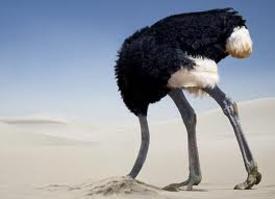We are pleased to announce that as of March 4, 2025, an updated Rich Text Editor has been introduced in the MyFitnessPal Community. To learn more about the changes, please click here. We look forward to sharing this new feature with you!
Boiled Egg vs Fried Egg!

KJBarker_
Posts: 4 Member
I've been eating Boiled Eggs for a while now and want to change it up.
If I Fried Eggs in Coconut oil would the Calories be the same as a Boiled Egg? Then add the Coconut oil Calories? Is that how it works?
Boiled Egg: 70 Calories.
Fried Egg: 70 Calories + Coconut oil portion???
If I Fried Eggs in Coconut oil would the Calories be the same as a Boiled Egg? Then add the Coconut oil Calories? Is that how it works?
Boiled Egg: 70 Calories.
Fried Egg: 70 Calories + Coconut oil portion???
0
Replies
-
I've been eating Boiled Eggs for a while now and want to change it up.
If I Fried Eggs in Coconut oil would the Calories be the same as a Boiled Egg? Then add the Coconut oil Calories? Is that how it works?
Boiled Egg: 70 Calories.
Fried Egg: 70 Calories + Coconut oil portion???
That's correct.3 -
I always make my fried/scrambled eggs with the 0 calorie cooking spray like PAM. Works great with no extra calories!

But if you were to use coconut oil, then yes it'd be 70 calories + Coconut oil portion.
5 -
yeah the egg doesn't change really- it's the oil that's the issue. And really assume about 120 calories per tablespoon of oil.
so you're egg went from a delicious lower calorie protein snack to a higher calorie fat snack of 200 ish calories.
2 -
i just use a little of the basic spray oil to get as little in the pan as I can when I fry. I also fry egg whites a lot.1
-
yeah the egg doesn't change really- it's the oil that's the issue. And really assume about 120 calories per tablespoon of oil.
so you're egg went from a delicious lower calorie protein snack to a higher calorie fat snack of 200 ish calories.
The Calories and Fats aren't really an issue for me. The more the better! I eat very minimal Carbs so I need an extra dosage of Fat. Coconut oil is a gift from the food gods so if I can eat Fried Eggs a healthy way and get my calories at the same time, why not3 -
If you're not concerned with calories, eggs fried in bacon fat are the best. They get nicely frilly. Coconut oil is not that much healthier - it's mostly saturated fat.15
-
I use coconut oil almost every morning for my eggs. 7 grams of coconut oil = 60 calories. Not bad IMO. I like coconut oil because it is very easy to measure out (put jar on scale, zero out, use a fork to scrape out 7 grams, set fork in pan while oil melts off.)3
-
I use Pam. Super easy, no calories. And fried eggs are way better with bacon than boiled ones! Enjoy!6
-
rheddmobile wrote: »If you're not concerned with calories, eggs fried in bacon fat are the best. They get nicely frilly. Coconut oil is not that much healthier - it's mostly saturated fat.
Heed this advice, or have it in butter. Coconut oil is nasty with eggs.7 -
I use coconut oil almost every morning for my eggs. 7 grams of coconut oil = 60 calories. Not bad IMO. I like coconut oil because it is very easy to measure out (put jar on scale, zero out, use a fork to scrape out 7 grams, set fork in pan while oil melts off.)
Yea I use a 20g portion of Coconut Oil in my Eggs which is 181 Calories. Pretty low for the benefits that come with it!2 -
I use coconut oil almost every morning for my eggs. 7 grams of coconut oil = 60 calories. Not bad IMO. I like coconut oil because it is very easy to measure out (put jar on scale, zero out, use a fork to scrape out 7 grams, set fork in pan while oil melts off.)
Yea I use a 20g portion of Coconut Oil in my Eggs which is 181 Calories. Pretty low for the benefits that come with it!
What are the benefits?4 -
What's the score with coconut oil nowadays? I've kind of heard mixed studies that its actually worse for you than butter because of the amount of saturated fat and you're better of using olive oil or virgin rapeseed oil?2
-
yeah the egg doesn't change really- it's the oil that's the issue. And really assume about 120 calories per tablespoon of oil.
so you're egg went from a delicious lower calorie protein snack to a higher calorie fat snack of 200 ish calories.
Oh noes...the coconut oil cancels out the protein?1 -
NOTE: I'd rather use non stick spray but that's just me0
-
-
Epic Duck Fat (epicbar.com/)...I use a teaspoon to do 4 eggs in a non-stick pan...43 calories added.
Now you may say "F uck D at" but I say "D uck F at!"
8 -
lporter229 wrote: »I use coconut oil almost every morning for my eggs. 7 grams of coconut oil = 60 calories. Not bad IMO. I like coconut oil because it is very easy to measure out (put jar on scale, zero out, use a fork to scrape out 7 grams, set fork in pan while oil melts off.)
Yea I use a 20g portion of Coconut Oil in my Eggs which is 181 Calories. Pretty low for the benefits that come with it!
What are the benefits?
Cocount Oil helps Increases the good Cholesterol in the body and removes the bad at the same time. It's Great for the skin. Lowers Heart Disease and also has no health risks.
1 -
I thought that Pam is actually 4 calories per 0.5 second spray? So the calories really do add up depending on how much you use.
*I believe in the US if an item has 4 calories or less companies can legally say 0 cals. Same with Splenda packs. They say 0 calories but they are actually 4 calories each.
In Canada Pam actually says 4 cals on it.9 -
Yes and what's your point?0 -
Yes and what's your point?
My point is you can do the same thing with butter, do you have trouble comprehending that?0 -
I've been eating Boiled Eggs for a while now and want to change it up.
If I Fried Eggs in Coconut oil would the Calories be the same as a Boiled Egg? Then add the Coconut oil Calories? Is that how it works?
Boiled Egg: 70 Calories.
Fried Egg: 70 Calories + Coconut oil portion???
Close enough, don't stress it too much. Poached is another good option.1 -
diannethegeek wrote: »I've been eating Boiled Eggs for a while now and want to change it up.
If I Fried Eggs in Coconut oil would the Calories be the same as a Boiled Egg? Then add the Coconut oil Calories? Is that how it works?
Boiled Egg: 70 Calories.
Fried Egg: 70 Calories + Coconut oil portion???
That's correct.
It's largely moot for me, but I wonder whether this is correct.
Eating an egg and also eating a specific quantity of coconut oil or other fat would simply be an exercise in addition as you suggest.
But in frying, the oil is distributed across the surface of a pan and only partially comes into contact with the egg, and in any event, some of the oil is left in the pan when you scoop out the egg. (I assume you are not tilting the pan and letting the leftover fat drip onto your cooked egg at the end.)1 -
That's correct, however, if you're looking to add a fat, I've found that butter tastes better with eggs. That's just my opinion though.3
-
that sounds about right, i eat both "skillet cooked" and boiled, just whatever im in the mood for, etc.. and add the cals from butter/oil portion cooked on the skillet.1
-
I like eggs fried in butter or bacon fat. But I need only about 1/4 tsp or so to keep the egg from sticking. It adds a few calories, but no more than a 1-2 second spray of Pam and it tastes better.
Pam is not zero calories despite what some may think.3 -
yeah the egg doesn't change really- it's the oil that's the issue. And really assume about 120 calories per tablespoon of oil.
so you're egg went from a delicious lower calorie protein snack to a higher calorie fat snack of 200 ish calories.
Oh noes...the coconut oil cancels out the protein?
no- the protein is still there- just changes the ratio of what you're getting... it's like people saying peanut butter is a great source of protein.
I mean- it's A source of protein- but IMHO is is not a GREAT source of protein. - same with an egg vs fried egg.
Suddenly you're going from almost all protein- so like 1/3 protein vs 2/3 fat. It's not that the protein is less- it's just less OF said snack. If you don't eat a lot of other fats- this may be a completely none issue- it just depends on how your macros are broken down.
Ratios and percentages and context matter. #nerdlife
1 -
This content has been removed.
-
lporter229 wrote: »I use coconut oil almost every morning for my eggs. 7 grams of coconut oil = 60 calories. Not bad IMO. I like coconut oil because it is very easy to measure out (put jar on scale, zero out, use a fork to scrape out 7 grams, set fork in pan while oil melts off.)
Yea I use a 20g portion of Coconut Oil in my Eggs which is 181 Calories. Pretty low for the benefits that come with it!
What are the benefits?
Cocount Oil helps Increases the good Cholesterol in the body and removes the bad at the same time. It's Great for the skin. Lowers Heart Disease and also has no health risks.
Actually, latest American Heart Association paper says it raises bad cholesterol as mush as, if not more, than beef fat.2 -
Without coconut oil, less calories.0
This discussion has been closed.
Categories
- All Categories
- 1.4M Health, Wellness and Goals
- 394.5K Introduce Yourself
- 44K Getting Started
- 260.5K Health and Weight Loss
- 176.1K Food and Nutrition
- 47.5K Recipes
- 232.7K Fitness and Exercise
- 444 Sleep, Mindfulness and Overall Wellness
- 6.5K Goal: Maintaining Weight
- 8.6K Goal: Gaining Weight and Body Building
- 153.1K Motivation and Support
- 8.1K Challenges
- 1.3K Debate Club
- 96.4K Chit-Chat
- 2.5K Fun and Games
- 4.1K MyFitnessPal Information
- 16 News and Announcements
- 1.3K Feature Suggestions and Ideas
- 2.8K MyFitnessPal Tech Support Questions

















